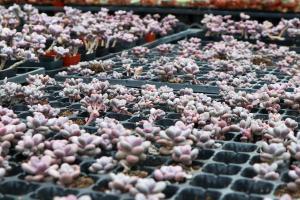Can I Plant Grass Seed in Winter?
Planting grass seed is a great way to grow a lush and green lawn. However, many people wonder if planting grass seed in winter is a good idea. The answer is not a simple one, as it depends on a variety of factors. In this article, we will explore the pros and cons of planting grass seed in winter and provide some tips for success.
The Pros of Planting Grass Seed in Winter
While the traditional time to plant grass seed is in the spring or fall, there are some advantages to planting in winter. These include:
Less competition: Since most people don't plant grass seed in winter, there is less competition for resources like sunlight and water.
Colder temperatures: Cooler temperatures can help to prevent the growth of weeds and unwanted plants that may be present in your lawn.
Lower water requirements: The cooler temperatures of winter mean that you won't need to water your lawn as frequently.
The Cons of Planting Grass Seed in Winter
Of course, there are also some downsides to planting grass seed in winter. These include:
Less growth: Grass seed will grow more slowly in the winter, meaning it may take longer to see results.
Less daylight: With shorter days in the winter, there is less sunlight available for your grass seed to grow.
More susceptibility to damage: Cold temperatures, frost, and snow can all damage your grass seeds and prevent them from growing properly.
Tips for Planting Grass Seed in Winter
If you do decide to plant grass seed in winter, there are some tips you can follow to increase your chances of success:
Choose the right type of grass: Some types of grass are better suited to colder temperatures than others. For example, fescue and rye grasses are more cold-tolerant.
Prepare your soil: Before planting your grass seed, make sure your soil is well-prepared with plenty of nutrients and organic matter.
Protect your seedlings: Once your grass seed has started to grow, protect it from frost and snow by covering it with a light layer of straw or mulch.
Water wisely: While you won't need to water your lawn as frequently in the winter, make sure to water deeply and infrequently to promote healthy growth.
In Conclusion
Planting grass seed in winter can be a viable option, but it requires careful planning and preparation. By considering the pros and cons and following the tips outlined above, you can increase your chances of success and grow a beautiful lawn even in the colder months.

 how many times do yo...
how many times do yo... how many planted tre...
how many planted tre... how many pine trees ...
how many pine trees ... how many pecan trees...
how many pecan trees... how many plants comp...
how many plants comp... how many plants can ...
how many plants can ... how many plants and ...
how many plants and ... how many pepper plan...
how many pepper plan...
































